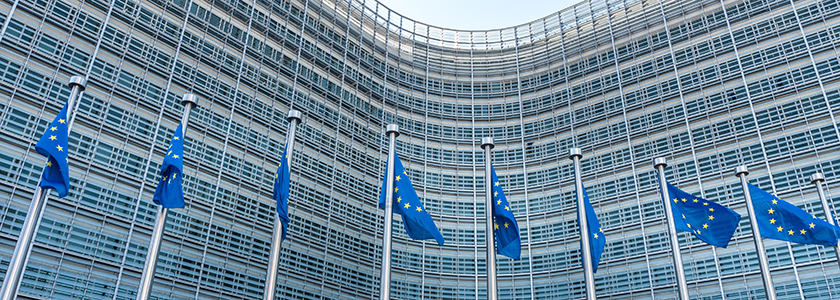The Iberoamerican University Foundation (FUNIBER) participated last June 17 in a meeting in Brussels (Belgium) with officials of the European Union to take stock of the first three years of work of the Teacher Academies, among which is the DigitalTA project (2022-2025).
The Verian Group (PPMI) served as the contractor responsible for evaluating the Academies’ progress and developing an assessment report. This report was the focus of a validation workshop held to review and refine PPMI’s findings. The evaluation recognized the initiative’s strengths while also offering constructive recommendations for improvement. It assessed the outcomes of the Erasmus+ Teacher Academies from the 2021 and 2022 calls using an extensive mixed-methods approach. This methodology included a combination of qualitative and quantitative tools, such as surveys, interviews, and systematic desk research.
The findings revealed that the Teacher Academies represent a dynamic flagship initiative that has significantly expanded opportunities for high-quality, transnational teacher education and training. The Academies have also played a vital role in advancing the EEA’s agenda for educators, despite operating within a complex policy and operational landscape. The assessment produced seven key recommendations to enhance the Academies’ impact. One notable recommendation emphasized the need for stronger collaboration across Academies and the development of a centralized resource platform to reduce duplication, improve accessibility, and ensure long-term utility.
The report highlighted that the Academies have exceeded their initial targets. Participants expressed high levels of satisfaction with the initiative, with 75% rating their experience as highly beneficial. Survey data also showed that 84% of respondents felt the Academies had directly influenced their daily teaching practices. Furthermore, 57% reported that their participation positively impacted their decision to remain in the teaching profession. The initiative has encouraged professional learning and pedagogical innovation among teacher educators across Europe.
Following the validation session, participants engaged in small group discussions focused on the report’s recommendations. These discussions centered on strategies to improve communication and connectivity between the different Academies.
The final session of the workshop was led by Ulrike Storost of the European Commission’s Directorate-General for Education, Youth, Sport and Culture (DG EAC). Storost, who authored the Teacher Academies code and is responsible for communicating the results to the EU, shared insights on enhancing coordination among Academies in alignment with the European Agenda for Teachers and Trainers. She emphasized the importance of using the Academies as a tool to strengthen professional development opportunities for educators—a vision already being advanced by initiatives such as DigitalTA. Ensuring the long-term sustainability of the DigitalTA platform remains a top priority.
In conclusion, the Erasmus+ Teacher Academies have made a substantial impact on the professional development of newly qualified teachers across Europe. The Academies are not only meeting their goals but are exceeding expectations while continuing to evolve. In particular, DigitalTA has been instrumental in supporting the mental well-being of early-career teachers. The report specifically analyzed DigitalTA’s role in improving teacher retention rates within the EU. The workshop offered valuable insights into how the Academies can become more centralized, more inclusive, and more accessible across all European languages.

“Funded by the European Union. However, the views and opinions expressed are solely those of the author(s) and do not necessarily reflect those of the European Union or the European Education and Culture Executive Agency (EACEA). Neither the European Union nor the granting authority can be held responsible for them.”
